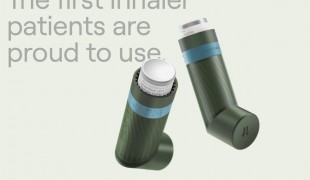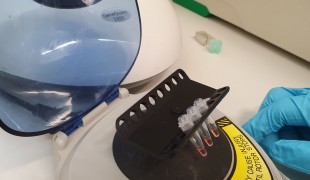- 2954
- 241
- 2
- 2
- 0
- Help Ukraine
About the solution
A team of scientists, clinicians and researchers from Imperial College London and the Imperial College Healthcare NHS Trust will lead the REal-time Assessment of Community Transmission (REACT) programme to conduct home testing and improve understanding of the spread of Coronavirus and the recovering rate since the outbreak.
Prof. Ara Darzi, a sponsor of the REACT programme at Imperial, said: “Short of a vaccine, testing is the only way out of lockdown. But the testing landscape is like the Wild West with no rules, no standards and widely varying reliability. Even the most accurate test is useless unless it is usable. With this ambitious programme, the biggest in England, we aim to establish a viable testing programme on which the Government can rely.”
The test will look at markers, virus antibodies, to determine infected and recovered individuals. The first part of the programme (REACT-1) will test 100,000 randomly selected people across 315 authorities in England. The samples will be testes for current infections in the laboratories.
In the second part of the programme (REACT-2), different antibody tests will be assessed for their accuracy and how easily people can use them at home. Antibody testing will determine how far the infection has spread and what proportion of the population has been infected. REACT-2 will first address volunteers from Imperial Healthcare NHS Trust who had the virus, to establish the accuracy of the test.
Professor Paul Elliott, director of the programme at Imperial, said:
“Community testing is a vital next step in ongoing efforts to mitigate the pandemic, but to be successful this must be based on robust scientific evidence. Through this important programme, we will gather the critical knowledge base necessary to underpin community testing programmes and facilitate a greater understanding of the prevalence of COVID-19 in the UK.”
If successful, the test will be distributed to a larger group of people to ensure it is usable by a wide range of the public. The aim will first be to understand whether people can perform the test themselves, then accuracy will be assessed by comparing results from home tests and test administered by a health professional.
Professor Helen Ward, Professor of Public Health at Imperial College London, said: “As part of this project we will work with public volunteers and patient advisors to see how easy it is for people to do these tests at home, and co-design the information and packaging that will go out with the tests. We have already had an excellent response from members of the public who are keen to support our research.”
The work is being commissioned by the Department of Health and Social Care and carried out in partnership with IpsosMORI.
Adapted from: https://www.imperial.ac.uk/news/197217/home-testing-coronavirus-track-le...
More information: https://www.imperial.ac.uk/news/197217/home-testing-coronavirus-track-le...
This solution shall not include mention to the use of drugs, chemicals or biologicals (including food); invasive devices; offensive, commercial or inherently dangerous content. This solution was not medically validated. Proceed with caution! If you have any doubts, please consult with a health professional.
DISCLAIMER: This story was written by someone who is not the author of the solution, therefore please be advised that, although it was written with the utmost respect for the innovation and the innovator, there can be some incorrect statements. If you find any errors please contact the patient Innovation team via info@patient-innovation.com
-
-
427
-
0
-
5247

Purcell – The drive to solve the problems with aerosolized drug delivery for a best friend.
VENTILATION
CAREGIVING
Asthma
Treatment/Surgical device
Fatigue
Difficulty breathing deeply
Improving respiratory function
Enhancing health literacy
Promoting self-management
Manage Medication
Preventing (Vaccination, Protection, Falls, Research/Mapping)
Raise awareness
Caregiving Support
General and Family Medicine
Infectious Diseases
Pediatrics
Pneumology
United Kingdom
-
-
-
309
-
0
-
3730

Scientists develop a rapid test for Covid19
CAREGIVING
Covid19
Treatment/Surgical device
Chest pain or discomfort
Sore throat
Fever
Fatigue
Difficulty breathing deeply
Nasal congestion
Productive cough (with sputum)
Nasal flaring
Shortness of breath
Enhancing health literacy
To implement a diagnostic tool
Preventing (Vaccination, Protection, Falls, Research/Mapping)
General and Family Medicine
Infectious Diseases
Pneumology
United Kingdom
-
-
-
347
-
0
-
3427

Cair, emergency asthma inhalers
VENTILATION
CAREGIVING
Asthma
3d Printed
Fatigue
Difficulty breathing deeply
Rapid breathing (tachypnea)
Shortness of breath
Improving respiratory function
Enhancing health literacy
Promoting self-management
Preventing (Vaccination, Protection, Falls, Research/Mapping)
Raise awareness
Caregiving Support
General and Family Medicine
Infectious Diseases
Internal Medicine
Pediatrics
Pneumology
India
-
 en
en